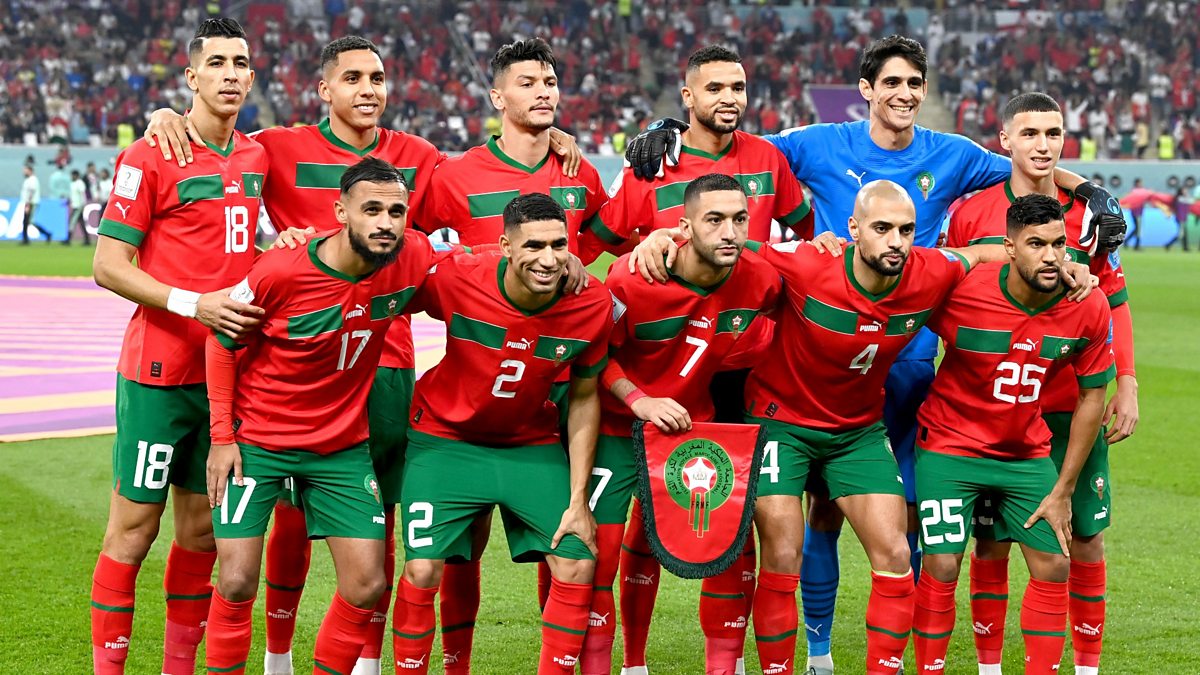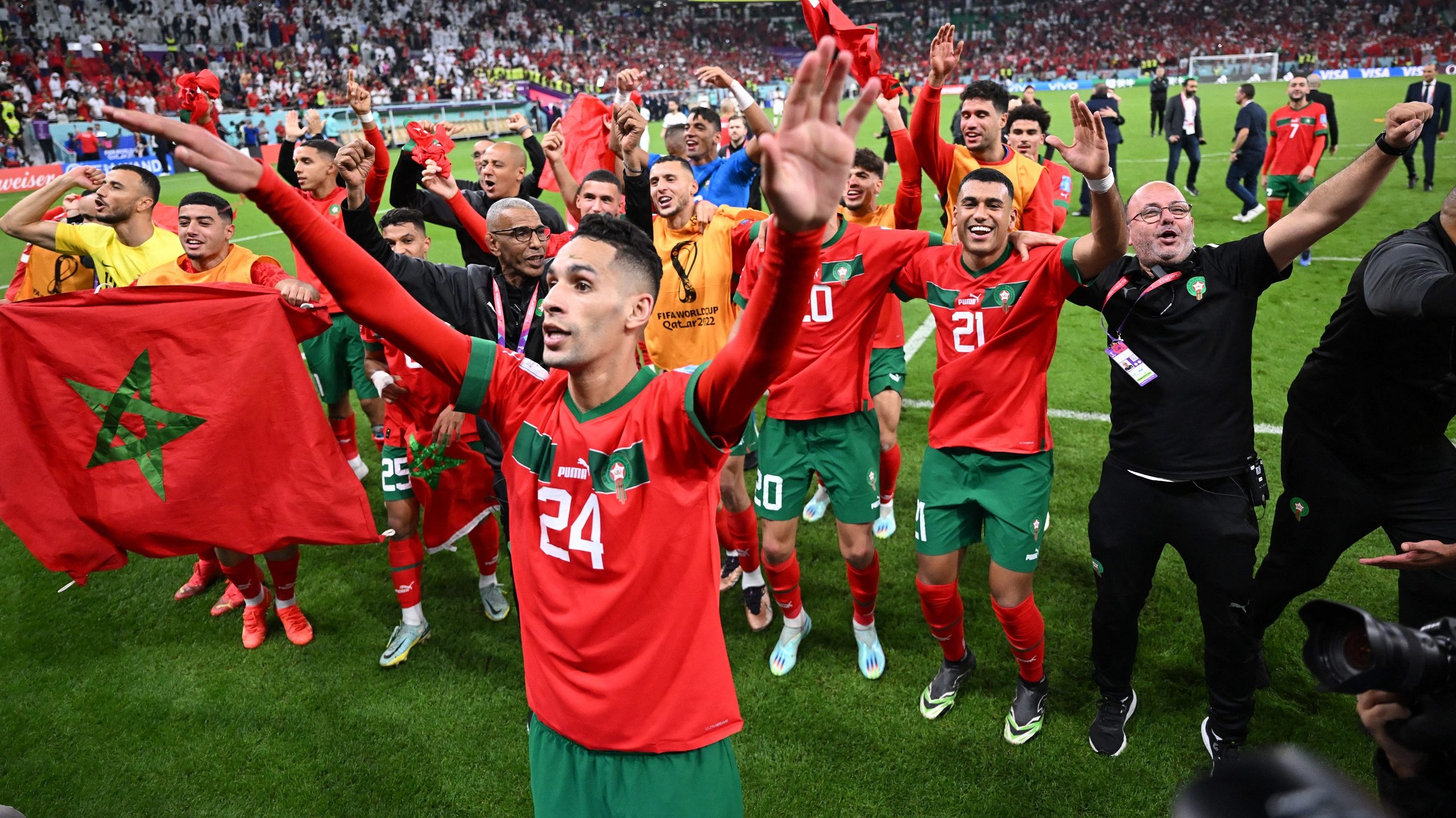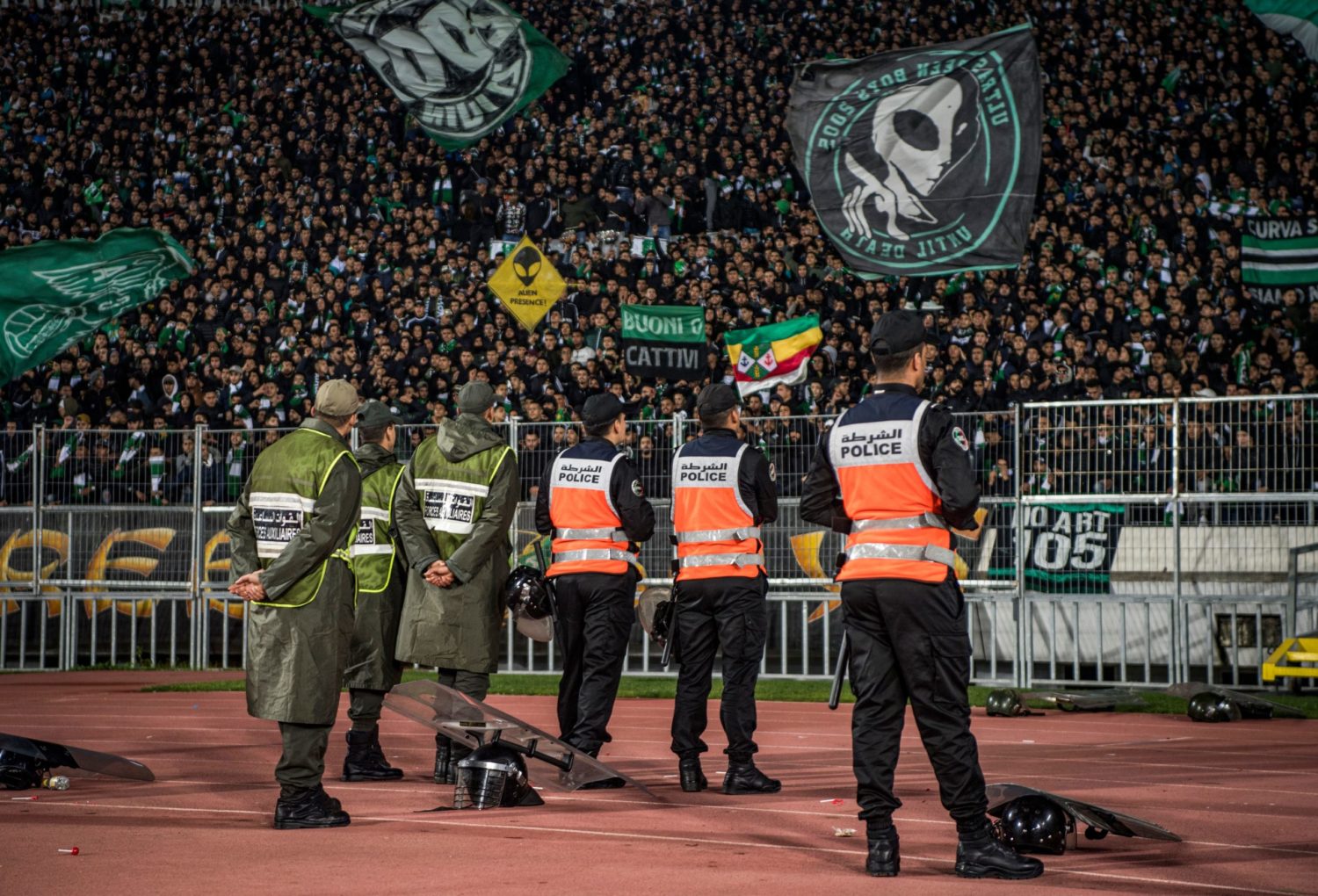“The Future of Football in Morocco: A Nation on the Rise
Related Articles The Future of Football in Morocco: A Nation on the Rise
The Future of Football in Morocco: A Nation on the Rise

Morocco has long been a nation with a deep passion for football. From the bustling streets of Casablanca to the remote villages in the Atlas Mountains, the beautiful game resonates with people of all ages and backgrounds. While the country has enjoyed periods of success on the continental stage, a recent surge in investment, infrastructure development, and talent cultivation suggests that the future of football in Morocco is brighter than ever before.
A Historic Milestone: The 2022 World Cup Run
The most significant catalyst for this optimism was undoubtedly Morocco’s historic performance at the 2022 FIFA World Cup in Qatar. The Atlas Lions, under the guidance of coach Walid Regragui, defied expectations and captivated the world with their tactical discipline, unwavering spirit, and stunning victories over European powerhouses like Belgium, Spain, and Portugal.
Reaching the semi-finals was a watershed moment, making Morocco the first African and Arab nation to achieve such a feat. The team’s success ignited national pride, inspired a new generation of footballers, and showcased the potential of Moroccan football on the global stage. The run to the semi-finals was not just a sporting achievement; it was a cultural phenomenon that united the nation and left an indelible mark on the history of African football.
Investing in Infrastructure: Building a Foundation for Success
One of the key pillars of Morocco’s footballing revolution is the significant investment in infrastructure. The Moroccan government and the Royal Moroccan Football Federation (FRMF) have recognized that modern, well-equipped facilities are essential for nurturing talent and creating a competitive environment.
- Mohammed VI Football Complex: This state-of-the-art training center, located in Maâmora near Salé, is a testament to Morocco’s commitment to football development. The complex boasts world-class training pitches, modern gymnasiums, medical facilities, and accommodation for players of all ages. It serves as a hub for national teams, youth academies, and coaching education programs.
- New Stadiums and Renovations: Several new stadiums have been built or renovated across the country to meet international standards. These modern venues provide a better experience for fans and players alike, while also enhancing Morocco’s ability to host major international tournaments.
- Regional Training Centers: The FRMF has established regional training centers throughout Morocco to identify and develop young talent in all corners of the country. These centers provide aspiring footballers with access to quality coaching, training facilities, and educational support.
Developing Youth Talent: Nurturing the Next Generation
Recognizing that the future of Moroccan football depends on the development of young players, the FRMF has implemented a comprehensive youth development program. This program focuses on identifying talented youngsters at an early age and providing them with the necessary training, education, and support to reach their full potential.
- National Youth Academies: The FRMF operates several national youth academies that provide elite training to the most promising young footballers in the country. These academies follow a standardized curriculum that emphasizes technical skills, tactical awareness, physical conditioning, and character development.
- Grassroots Football Programs: The FRMF also supports grassroots football programs that aim to promote the sport at the community level. These programs provide opportunities for children of all backgrounds to participate in organized football activities, fostering a love of the game and identifying potential talent.
- Coaching Education: The FRMF places a strong emphasis on coaching education, offering a range of courses and workshops to train and certify coaches at all levels. This ensures that young players receive quality instruction from qualified coaches who are knowledgeable about the latest training methods and techniques.

Strengthening the Domestic League: Botola Pro
A strong domestic league is crucial for the long-term success of any footballing nation. The Botola Pro, Morocco’s top-flight professional league, has made significant strides in recent years, thanks to increased investment, improved infrastructure, and better governance.
- Professionalization: The FRMF has implemented stricter regulations to professionalize the Botola Pro, requiring clubs to meet certain financial and administrative standards. This has led to greater stability and transparency within the league.
- Increased Investment: Moroccan clubs have attracted more investment from both domestic and international sources, allowing them to improve their facilities, sign better players, and pay competitive salaries.
- Improved Governance: The FRMF has worked to improve the governance of the Botola Pro, implementing measures to combat corruption, promote fair play, and ensure the integrity of the competition.
- Competitive Balance: While some clubs like Wydad Casablanca and Raja Casablanca have historically dominated the Botola Pro, the league has become more competitive in recent years, with several other clubs emerging as contenders. This has made the league more exciting and unpredictable, attracting more fans and generating greater interest.
Leveraging the Diaspora: A Rich Source of Talent
Morocco has a large and vibrant diaspora, with millions of Moroccans living in Europe, North America, and other parts of the world. Many of these Moroccans have grown up playing football in their adopted countries, developing skills and experience that can be valuable assets to the Moroccan national team.
- Identifying and Recruiting Diaspora Players: The FRMF has made a concerted effort to identify and recruit talented players from the Moroccan diaspora. This has involved scouting players at youth academies and professional clubs in Europe and North America, as well as establishing relationships with Moroccan communities abroad.
- Integrating Diaspora Players into the National Team: The integration of diaspora players into the Moroccan national team has been a key factor in the team’s recent success. Players like Achraf Hakimi, Hakim Ziyech, and Noussair Mazraoui, who were all born and raised in Europe, have become integral members of the Atlas Lions, bringing their skills, experience, and international exposure to the team.
- Dual Nationality Issues: The FRMF has worked to address the challenges associated with dual nationality, ensuring that players who choose to represent Morocco are fully committed to the national team.
Challenges and Opportunities
Despite the progress made in recent years, Moroccan football still faces several challenges:
- Financial Sustainability: Many Moroccan clubs continue to struggle with financial sustainability, relying heavily on government subsidies and struggling to generate revenue from ticket sales, merchandise, and sponsorships.
- Corruption and Governance: While the FRMF has made efforts to combat corruption and improve governance, these issues remain a concern in Moroccan football.
- Competition from European Leagues: The Botola Pro faces stiff competition from European leagues, which attract the best Moroccan players and draw the attention of Moroccan fans.
- Maintaining Momentum: The challenge for Moroccan football is to maintain the momentum generated by the 2022 World Cup run and continue to build on the progress made in recent years.
However, there are also significant opportunities for Moroccan football to continue to grow and develop:
- Hosting Major Tournaments: Morocco has expressed its intention to bid for the FIFA World Cup 2030, either alone or in a joint bid with other countries. Hosting such a prestigious tournament would provide a massive boost to Moroccan football, attracting investment, improving infrastructure, and raising the profile of the country on the global stage.
- Developing a Stronger Fan Base: Moroccan football has a passionate fan base, but there is potential to further develop this fan base by improving the matchday experience, promoting the sport at the grassroots level, and engaging with fans through social media and other digital platforms.
- Exporting Talent: Morocco has a wealth of footballing talent, and there is potential to export more players to top leagues around the world. This would not only generate revenue for Moroccan clubs but also raise the profile of Moroccan football and inspire young players to pursue their dreams.
- Leveraging Technology: Technology can play a key role in the development of Moroccan football, from improving training methods to enhancing the fan experience. The FRMF can invest in technology to track player performance, analyze match data, and provide fans with access to real-time information.
Conclusion
The future of football in Morocco is bright. The country’s historic performance at the 2022 World Cup, coupled with significant investment in infrastructure, youth development, and the domestic league, has created a strong foundation for future success. While challenges remain, the opportunities for growth and development are immense. With continued dedication, strategic planning, and a commitment to excellence, Morocco has the potential to become a major force in African and global football. The Atlas Lions have awoken, and their roar is being heard around the world.

